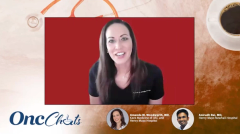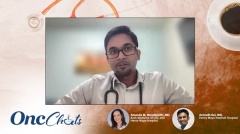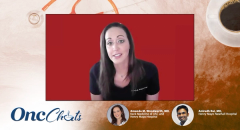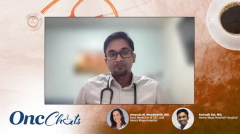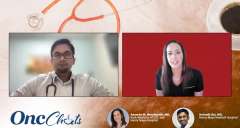
Empowering Community Cancer Care: Importance of Outreach Initiatives
In this episode of OncChats: Empowering Community Cancer Care, Dr. Rai emphasizes the importance of community outreach and support for patients with cancer.
Episodes in this series
In this episode of OncChats: Empowering Community Cancer Care, Anirudh Rai, MD, of Henry Mayo Newhall Hospital, emphasizes the importance of community outreach and support for patients with cancer, highlighting the need for holistic care that addresses both physiological and psychological aspects of treatment while reinforcing the value of strong relationships between primary care physicians and specialists.
Rai: The fact is, we in the primary care setting can suspect cancer, but it’s ultimately the specialists who would do the biopsy and diagnose it. Ultimately, coming back to the primary care setting, it is something that we see—as soon as that diagnosis is made, there is this sort of sobering effect going throughout the patient’s life honestly. It is a diagnosis that no one wishes to have, and it is a reality. Ultimately, it is our job as doctors to not only treat the disease per se but [also treat] the patients physiologically and psychologically, as well, as you mentioned. These resources are vital. I think having that sort of aspect, where you have the community involved, reaching out to the community, shows a lot of effort, honestly—especially when it comes to these kinds of diagnoses and especially when the patient has had a known diagnosis of cancer. Having that survivorship program is encouraging to the patients, for sure. I know some of my patients have mentioned that it is encouraging to know that someone has beaten this, and some people have survived.
But looking at the other end, it’s important to also understand that ultimately, the death rate in this world is one per person. So, it is something that we always try to keep in the back of our minds. Even in our training, we always know that it’s something that is there, and ultimately, talking to the patient about this as a human being is vital; [it’s] going down and honestly saying, “Hey, you’re going through this. Let’s see what we could help out.” It’s not the fact that we ever abandoned them, especially when it comes to palliative [care] and hospice, it’s the fact that we’re helping them to achieve their quality of life despite this diagnosis. Having those outreach programs to let patients know we’re still there helping them out, that we’re still out here treating them, that’s important. [This is especially [true] when they’re primary care setting, we see a lot of that; the patients seem to have lost hope, but we always tell our patients that they’re in good hands when they see their specialist and having that community is important. Me, as a physician, I like to work with the specialist’s my patients go to, and having that one-on-one conversation gives the patient some comfort, as well. So, the link between that and academic is something that I believe you’re more aware of, for sure, but at the same time, I do like the fact that we’re incorporating a lot of these new technologies into [the process]. Implementing [some of them] into the community takes a lot of effort.
I really do appreciate the outreach programs you do have going, Dr Woodward; [they are] encouraging. It gives me more information and lets the patients know, from their standpoint, that there is newer stuff coming out, and that there’s always hope going forward. These kinds of partnerships are ultimately the best way to keep a community intact, to keep a community up to date on the knowledge, but also to make sure that, from a human standpoint, we care about our patients. I remember a saying that someone told me, at least when I first started: “A patient doesn’t care how much you know. They just want to know that you care.” These partnerships, these encouraging endeavors, go well to make a community stable and to also encourage others to know that if they’re joining the community, they are in good hands. I think ultimately, these outreach programs, these endeavors to reach out, is always going to be a fruitful endeavor to help provide the best care for our patients.
Woodworth: Excellent, thank you.


